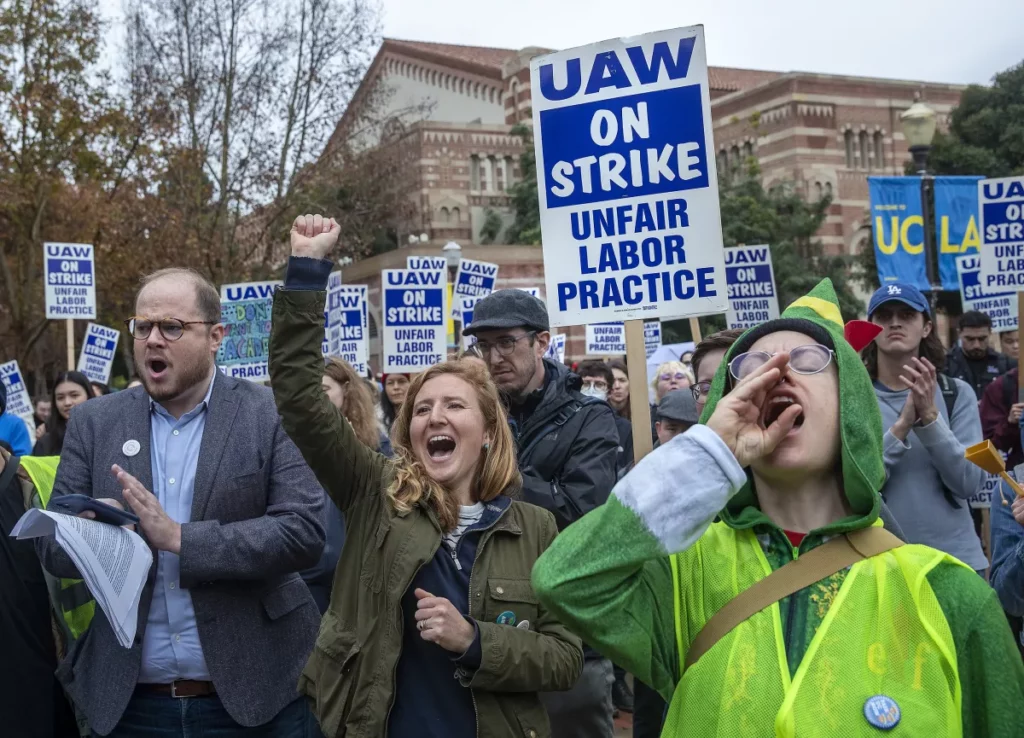From today’s Los Angeles Times:
Sam Ponnada, a doctoral candidate helping organize a union at Caltech was surprised by an unexpected campus decision last month to increase graduate student stipends by 17% — a major raise the university said was an independent decision, but “several of us can’t help but notice … happened right after the big UC strike,” he said.

Piril Nergis is a doctoral student at USC but joined picket lines at UCLA to support the recent strike of University of California academic workers. Solidarity trumped crosstown rivalry in what Nergis said was an electrifying experience that helped fire up union organizing efforts among USC’s own graduate students.
And at the Rand Corp.’s graduate school in Santa Monica, David DeSmet said he and fellow doctoral students were inspired to organize with the United Auto Workers after reading about UC graduate student researchers forming their first union and winning “really dang good” wage gains.
The UC strike is over, culminating last month in significant improvements in wages and working conditions after 48,000 teaching assistants, tutors, researchers and postdoctoral scholars walked off their jobs in the nation’s largest labor action of academic workers. But the effects of the historic strike still reverberate across the nation, helping energize an unprecedented surge of union activism among academic workers that could reshape the teaching and research enterprise of American higher education.
In 2022 alone, graduate students representing 30,000 peers at nearly a dozen institutions filed documents with the National Labor Relations Board for a union election. They include USC, Northwestern, Yale, Johns Hopkins, the University of Chicago, Boston University and the Massachusetts Institute of Technology. Caltech plans to officially kick off its organizing campaign this month, and other academic researchers are working to form unions at the University of Alaska, Western Washington University, the National Institutes of Health and such influential think tanks as the Brookings Institution and Urban Institute.
A confluence of several factors has propelled the burst of labor activism: disaffection with rising inflation, unaffordable housing, limited healthcare, growing student debt, university treatment of academic workers during the pandemic, and a more union-friendly Biden administration. But students and labor experts also point to the influence of the UC strike, which drew national attention by marshaling four UAW bargaining units on all 10 campuses and the Lawrence Berkeley National Laboratory to pull off a massive walkout that shut down classes, suspended research, roiled finals and upended grading — ultimately winning some of the largest wage gains ever secured by academic workers.
Read the complete story.